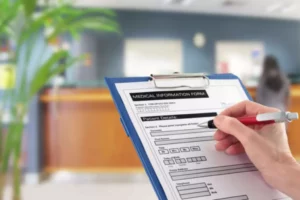Content

Our blog covers our thoughts on how economics undermine the future of vertical ERP software providers using companies that grow fresh produce as the example. Managing your entire food chain has never been easier than within Dynamics 365 Business Central. TNP’s developed solution gives https://www.bookstime.com/articles/enterprise-resource-planning-erp-definition you the ability to move, track and trace products in real time to boost your efficiency in getting stock to market. We are passionate about business applications like ERP and truly believe that well implemented and supported business software benefits both a business and its people.
What are the 5 components of ERP?
- Human Resources. Managing your employees is typically the highest priority and a prominent component of ERP.
- Customer Relationship Management (CRM)
- Business Intelligence (BI)
- Supply Chain Management (SCM)
- Inventory Management.
- Accounting/Financial Management.
ERP II refers to internet-enabled ERP systems that use web connections to send and receive information from various applications. The answer to this question largely depends on the size and complexity of your organization, as well as the specific ERP system you choose. Generally speaking, it can take anywhere from several months to a year or more to fully implement an ERP system. Companies should carefully consider their needs and resources when choosing an ERP solution since each type of system has its own advantages and disadvantages.
Why is ERP important?
AI elements of artificial intelligence are responsible for making intelligent decisions based on human inputs that turn to make the app fast and more useful for every individual user. Huffman has given the example of information searching in the NetSuite and continuous communication with some defined set of record types like customer data and product catalog data. When humans perform some task in the ERP system, they follow some predefined rules that command all the actions and processes.
In short, an ERP system can be a powerful tool for any restaurant manager or business owner. ERP systems can provide mobility benefits by enabling employees to access the system from mobile devices like smartphones and tablets. This allows employees to stay connected to important data and workflows even when away from the office.
Assists in boosting efficiency
Explore more ERP technology trends – and learn how to systematically evaluate your options, avoid pitfalls, and get started with the right innovations for your business. Built for the digital age, today’s ERP cloud embraces mobile, social, analytics, and the latest emerging technologies. The next generation of young workers have grown up with seamless technology that is mobile, easy to use, and always-on. No company that continues to rely purely with on-premises technology will be able to recruit top talent, regardless of age.

These integrated systems act as a business’s central hub for end-to-end workflow and data, allowing a variety of departments to access. Those tasks could include updating information on your website, transferring data between departments, and more. For the small business market, some vendors make entry-level ERP that comes with core HR, finance and other commonly used modules, such as order management and CRM, and is relatively easy to implement. An ERP system is also likely to have a consistent look and feel across modules, unlike a collection of business management software from different vendors.
The Secrets of ERP Adoption Success
One of the primary benefits of ERP is the automation of routine tasks, an area where HR departments often stand to benefit the most. The process of transitioning to a new ERP system varies by project and requires planning and strategizing to best fit the needs of your company. Choosing the right ERP implementation strategy is key to finding success with your new system. The time and financial investment involved depends on several factors, including deployment model, system complexity, implementation strategy, company sizes and the resources dedicated to the project. Done well, an ERP integration can set your company up for an exciting new level of success.
- These hybrid models can provide users with a flexible ERP solution and integrate benefits that may not have been available within the existing implementation.
- Running a business becomes increasingly more complicated as it grows larger and becomes more successful.
- ERP software can be used in any industry to help a business become more efficient.
- By centralizing data from different departments, an ERP system can generate reports and analytics that provide a holistic view of the organization’s performance.
Tier 1 ERP systems tend to come with a wide range of features and functions built-in, but like other ERP solutions, can also be customized to meet the specific needs of your company and team. Stripped down to the basics, the concept of an ERP system is a centralized database that enables businesses to improve the flow of information between departments. Using https://www.bookstime.com/ cloud computing and software systems, ERP works to improve core business processes through automation and artificial intelligence. ERP stands for “Enterprise Resource Planning” and refers to a type of software or system used by a business to plan and manage daily activities such as supply chain, manufacturing, services, financials and other processes.
ERP in Supply Chain Management: Benefits
Our blog covers what we mean by a rapid ERP implementation and how the process works in practice. Selecting an Enterprise Resource Planning solution to implement can be a tricky business. We know the beverages industry inside out and are able to advise on the best way to tackle the unique challenges that drinks companies have to overcome. If you’re looking for something more specific to your industry, check out the pages below. Our experts have worked on countless projects across industries such as Retail, Fashion, Beverages and Furniture and have the expertise to assist you in any capacity you require. We have a sister brand, called The Power People, who specialise in integrations of this kind.
Santa Clara Switches to Workday — The Santa Clara – The Santa Clara
Santa Clara Switches to Workday — The Santa Clara.
Posted: Mon, 15 May 2023 07:00:00 GMT [source]
Enterprise Resource Planning (ERP) is software which was written with the ability to deliver an integrated suite of business applications. ERP systems are designed to be scalable, meaning they can grow and adapt to the changing needs of an organization. This makes them a flexible solution for businesses of all sizes, from small startups to large enterprises.
0 Comments